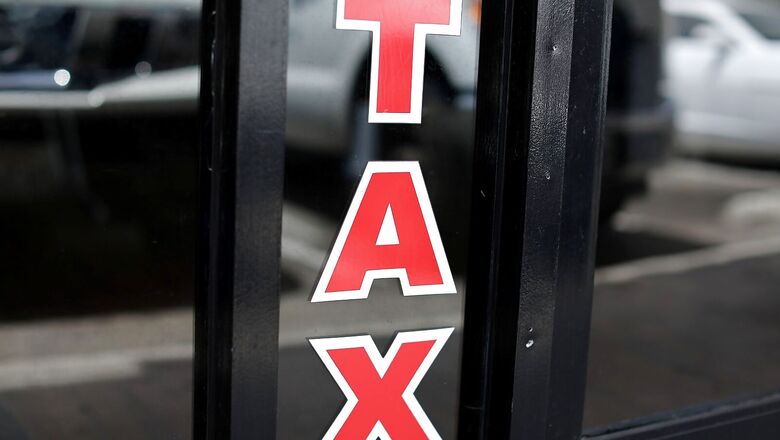
views
It’s less than three weeks to go for the Narendra Modi government’s last full-fledged Budget before the 2024 Lok Sabha elections. And while expectations are many, the one most echoed is much-needed tax break for the population segment that forms the biggest chuck of Indian taxpayers – the salaried middle class.
Like every year, the common man is this year too hoping for some form of tax relief from Finance Minister Nirmala Sitharaman. The hope is heightened with general elections due next year.
No relief by way of changes in tax slabs, tax rates or standard deduction has been a major grouse among the Indian middle class in the last few Union Budgets. With the Covid-19 crisis hitting savings hard and triggering salary cuts and layoffs, the middle class wants a break.
Consultations are on in the Finance Ministry and speculation is rife that the income tax exemption limit or standard deduction may be raised in Union Budget 2023. From the current Rs 2.5 lakh, it limit could possibly be raised to Rs 5 lakh, leaving more disposable income in the hands of the salaried class.
But there’s a twist. This increased exemption limit may be available only to taxpayers who have opted for the new income tax regime, which was introduced in 2020 and provides lower tax rates but where there are virtually no tax saving deductions. The goal here may be to make the new simplified tax regime more lucrative for people since only 10-12% of the taxpayers have opted for it so far.
Tapati Ghose, partner at Deloitte India, says the government may also look at some tweaks to the way the super-rich are taxed. India perhaps has the highest tax rate in its neighbourhood for those with income above Rs 5 crore. At 42.7%, it is more than Singapore, Hong Kong and Malaysia.
“Ensuring there is no investment outflow out of country is also important and for that perhaps a relook at these rates is necessary," Ghose told News18.
Boosting investments in the country is key to keeping the growth trajectory stable, especially at a time when the world is going through recessionary fears. One way to do that is via corporate tax, which currently varies for different brackets.
Biocon Limited founder Kiran Mazumdar Shaw agrees with industry experts that rationalization of corporate tax is the way forward. “Corporate tax of around 15-20% levied uniformly would go a long way," says Shaw.
There have been no changes to the income tax limit since 2014. With repo rates being hiked multiple times in the last seven months, EMIs have gone up. Savings have dwindled with EPFO interest rates being slashed and the kitchen budget has gone up with GST being hiked on everyday commodities.
“We have to ensure there is more disposable income left in the hands of the consumer, need demand to grow and for the economy to be consumer driven," says Saket Dalmia, president of PHD Chamber of Commerce and Industry.
Headlined by income tax relief, the wish-list of the salaried middle-class is a long one. How many of these wishes will Nirmala Sitharaman grant on February 1?
Read all the Latest Business News here


















Comments
0 comment